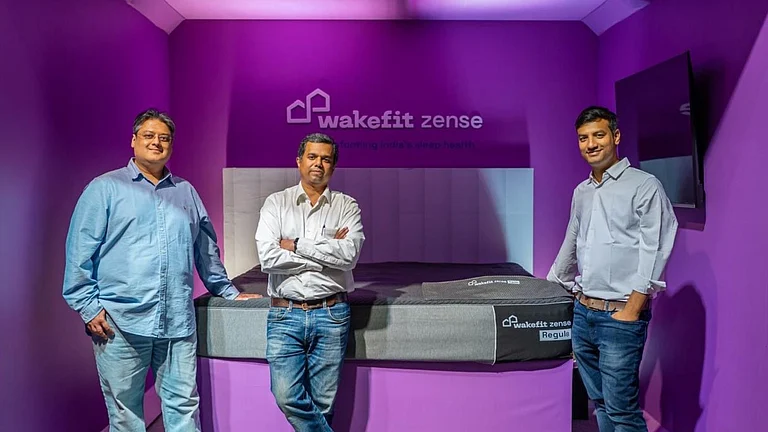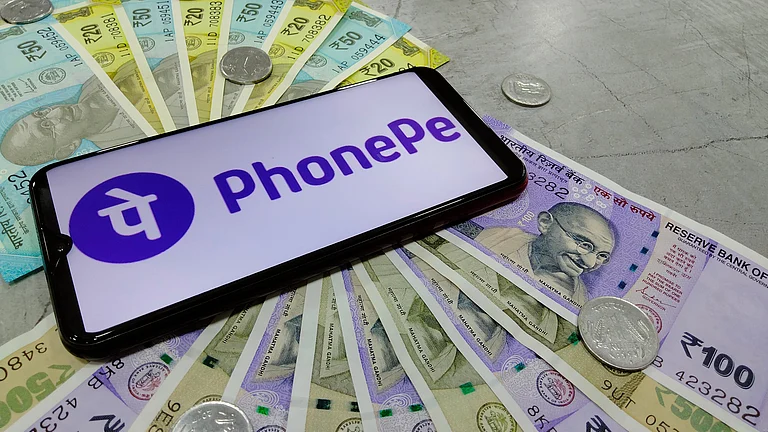D2C furniture and mattress start-up Wakefit has filed its draft red herring prospectus (DRHP) with the markets regulator SEBI (Securities and Exchange Board of India) to go public this year. The IPO includes a fresh issue of shares worth ₹468 crore and an offer for sale (OFS) of up to 5.83 crore shares by early investors and founders.
With this, the overall IPO size may balloon to ₹1,500-2,000 crore due to a sizable offer-for-sale by existing shareholders. The start-up plans to get listed on both the NSE and BSE. Its book-running lead managers for the IPO are Axis Capital, IIFL Capital Services, and Nomura Financial Advisory.
The start-up’s journey to the public markets comes nearly 10 years after it began operations from a Bengaluru apartment, with an aim to make quality sleep accessible and affordable.
Wakefit, founded by Ankit Garg and Chaitanya Ramalingegowda in 2016, offers products like mattresses, furniture, and furnishings through its omnichannel presence. However, the promoters want to expand its retail store network, where the fresh capital will be used. Besides this, Wakefit will also spend some portion on brand building.
Who’s Selling What in Wakefit IPO?
Wakefit’s early investors will “partially” cash out through the IPO. As per its DRHP, Peak XV Partners will offload up to 2.5 crore shares, while Belgian investment firm Verlinvest will offer 1.02 crore shares. Apart from investors, the founders (Garg and Ramalingegowda) will also cut short their stakes by selling 77.3 lakh and 44.5 lakh shares, respectively.
Among the other sellers in the IPO are Investcorp (through two of its funds), Paramark KB Fund, Redwood Trust, and SAI Global India Fund. In addition to this, another investor Nitika Goel also plans to offload 7.2 lakh shares.
Who’s Likely to Earn the Most?
Early investors like Garg, Ramalingegowda, and Goel are supposed to earn higher returns in the IPO as compared to late-stage investors, owing to their low acquisition cost per share.
As per the DRHP, Garg acquired his shares at just ₹ 0.02, Ramalingegowda at ₹0.04, and Goel at ₹0.04. In contrast, late-stage institutional investors such as Investcorp Growth Equity Fund and Verlinvest SA bought in at significantly higher prices of ₹87.85 and ₹82.67 per share, respectively.
This huge cost gap means that early entrants will see thousands of times higher return multiples on their investment.
For instance, Wakefit's unlisted share price stands at ₹110 apiece, according to planify.in data. At this price, Garg's investment will grow nearly 5,500x since his average cost was just ₹0.02 per share.
However, Investcorp and Verlinvest, who entered much later at around ₹85 per share, may only get 1.2x to 1.3x returns, in case of unlisted price taken as a reference for now.
How Wakefit’s Numbers Stack Up?
The start-up reported a 21% increase in operating revenue in the financial year 2024. It jumped to ₹986 crore in FY24 from ₹812.6 crore in the year before. It also reduced its net losses substantially, i.e., from ₹145.6 crore in FY23 to ₹15 crore in FY24.
Despite rising revenue and declining losses, profitability remains a task still to be achieved. As of the nine-month ending December 2024, Wakefit posted a net loss of ₹8.8 crore. The start-up also remains in the red at an operational level as it continues to burn cash. This has been flagged as a key risk in its DRHP.
At a unit level, Wakefit spent ₹1.03 to generate every rupee in revenue during the nine months of FY25. As of the period end, the company held current assets totaling ₹577 crore, which included ₹19 crore in cash and bank balances.
It generated ₹971 crore in operating revenue in the first nine months of FY25 – almost on par with its full-year revenue of ₹986 crore in FY24. This figure came from sales of its own manufactured products, contributing ₹951 crore or say, over 97% of the operating income.
Additional earnings from traded goods and other sources brought the total income for the same period to ₹994 crore.
Where Wakefit Will Use IPO Fund?
The start-up plans to deploy ₹82.15 crore to expand its offline presence by adding 118 company-owned stores. This will include a large format “jumbo” outlet, doubling its total to 216 stores. Additionally, it will also allocate ₹145.19 crores to lease and license payments across its current 98 outlets over the next four years.
Of the total IPO fund, a significant chunk worth ₹108.4 crore will also fuel brand building efforts, with HiveMinds managing both digital and offline campaigns. It also intends to invest ₹15.4 crore in new equipment and machinery, while the remaining funds will go toward general corporate needs. Most of this capital expenditure is scheduled between FY27 and FY29.
What Could Go Wrong?
The start-up derives a significant portion of its revenue from mattress product category. Its revenue from the sale of mattresses accounted for 62.22% of Wakefit’s total revenue in the first nine months of FY25.
“Any shifts in consumer preferences, any disruption in the supply chain, or heightened competition could adversely affect our business, results of operations, financial condition and cash flows,” it said in the DRHP.
Wakefit operates five manufacturing facilities across Karnataka, Tamil Nadu, and Haryana, all of which are exposed to potential disruptions from power failures, machinery issues, or labour challenges. Its fast-paced retail expansion, particularly with the addition of large-format stores, also introduces significant execution risk.
The start-up is also involved in 19 unresolved tax cases, totaling ₹9.7 crore. Though these don’t meet SEBI’s threshold for material disclosures, they remain on the books. The company has also initiated two criminal proceedings - one against ex-employees in Kolkata and another involving a current employee in Patna - both related to suspected financial fraud.
“We do not have long term agreements with suppliers for our raw materials and an increase in the cost of or a shortfall in the availability of such raw materials could have an adverse effect on our business, results of operations, financial condition and cash flows,” it added.
If all goes as planned, Wakefit’s IPO could rank among the biggest in India’s D2C and furniture segments. This would be a major milestone in its evolution from a lean mattress startup to a full-scale omnichannel retail brand.






































